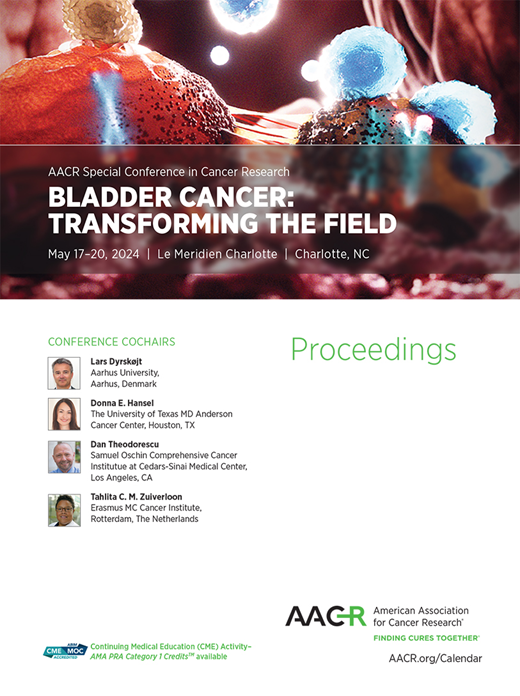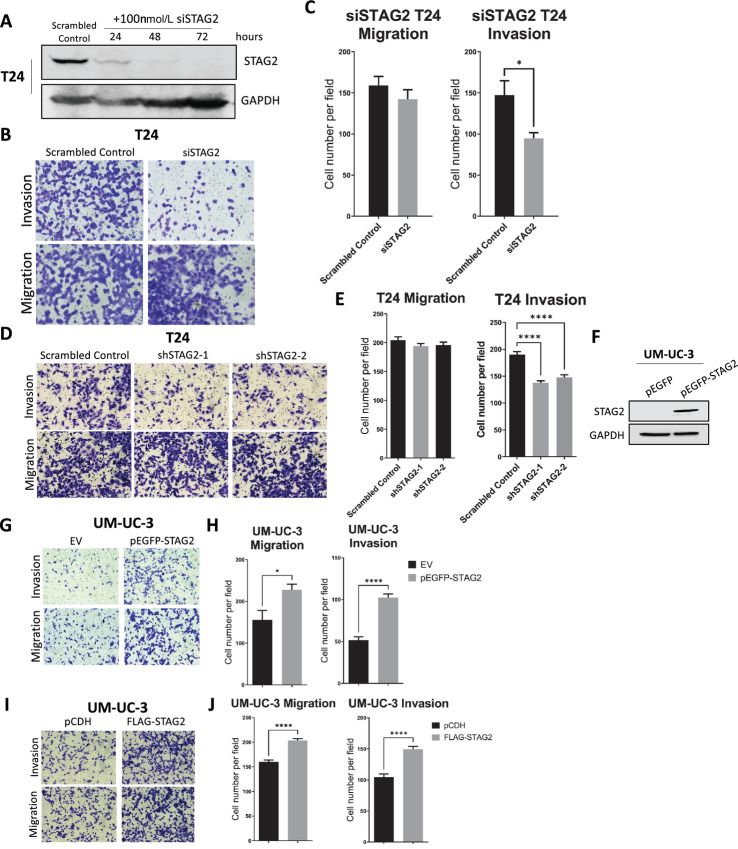Inside the Woloszynska Lab, we’re concentrating on understanding epigenetic dysregulation in muscle-invasive bladder cancer (MIBC).
By investigating the roles of the PRC2 complex, specifically EZH2, and DNA methylation, we have identified key vulnerabilities linked to poor outcomes in MIBC patients.
These findings not only enhance our understanding of the disease but also pave the way for designing novel pharmacological interventions targeting these epigenetic alterations.
2024 AACR Special Conference:
Bladder Cancer: Transforming the Field
- Abstract Pr007: Identifying targeted therapies for muscle invasive bladder cancer via STAG2 expression
- Authors: Sarah R. Athans, Henry Withers, Zara Kazmierczak, Katerina Gurova, Anna Woloszynska
- Citation: Clin Cancer Res 2024;30(10_Suppl):Abstract nr PR007
Bladder cancer Q&A with Dr. Woloszynska
At the 2023 Bladder Cancer Advocacy Network Think Tank, Dr. Woloszynska co-chaired a session titled “Epigenetics and response to immunotherapy in bladder cancer – clinic to bench and back.” She spoke with Urology Times about recent research and clinical trends:
“Combination therapies with epigenetic drugs and immunotherapy have the potential of not being as toxic as some previous regimens and [may] allow patients who are often elderly with a lot of other health problems stay on these treatments and hopefully benefit from them.”
Selected publications
- Doshi B, Athans SR, Woloszynska A. Biological differences underlying sex and gender disparities in bladder cancer: current synopsis and future directions. Oncogenesis. 2023 Sep 4;12(1):44. doi: 10.1038/s41389-023-00489-9.
PMID: 37666817Full text in Oncogenesis - Athans S, et al. STAG2 expression is associated with adverse survival outcomes and regulates cell phenotype in muscle-invasive bladder cancer. Cancer Res Commun. 2022 Oct;2(10):1129-1143. doi: 10.1158/2767-9764.crc-22-0155
PMID: 36275363Full text in Cancer Research Communications - Ramakrishnan S, et al. Inhibition of EZH2 induces NK cell-mediated differentiation and death in muscle-invasive bladder cancer. Cell Death Differ. 2019 Oct;26(10):2100-2114. doi: 10.1038/s41418-019-0278-9.
PMID: 30692641Full text in Cell Death & Differentiation - Bunch B, et al. TAp73 expression and P1 promoter methylation, a potential marker for chemoresponsiveness to cisplatin therapy and survival in muscle-invasive bladder cancer (MIBC). Cell Cycle. 2019 Sep;18(17):2055-2066. doi: 10.1080/15384101.2019.1638693.
PMID: 31318640Full text in Cell Cycle - Aquila L, et al. The role of STAG2 in bladder cancer. Pharmacol Res. 2018 May;131:143-149. doi: 10.1016/j.phrs.2018.02.025.
PMID: 29501732Full text in Pharmacological Research - Ramakrishnan S, et al. Inhibition of EZH2 induces NK cell-mediated differentiation and death in muscle-invasive bladder cancer. Cell Death Differ. 2019 Oct;26(10):2100-2114. doi: 10.1038/s41418-019-0278-9.
PMID: 29242529Full text in Cell Death & Disease
Connect with the Woloszynska Lab
Department of Pharmacology & Therapeutics
Roswell Park Comprehensive Cancer Center
Elm and Carlton Streets
Buffalo, NY 14263



